#Claude Julien
Text
love is not an easy thing to admit but i'm not ashamed of it BTW!!!! love is not a weakening if you feel it rushing in don't be ashamed of it❗❗❗IF U EVEN CAREEEEEEEE
#ONE OF THE BEST SONGS EVER I'M SO SERIOUS PARAMORE I OWE U MY ENTIRE LIFE 🙏🙏🙏#r.txt#song is liar if u didn't know <333 specifically right now the version with romy but the original is just as good!!!#of all the reworks romy's liar is my fave definitely but the news re: the linda lindas and crave re: claud and THICK SLULL RE: JULIEN BAKER#are so so soo so sooooo good also. and sanity obviously like. why end it at a demo make it a whole finished song please n thank you
7 notes
·
View notes
Text
at the end of the show tonight lucy walked by to head to the bus and she had a strand books bag meaning she clearly visited when they were in nyc......she is so real🫶
#i had to be very professional since i was on the clock#but i was very close to both lucy and julien at points which was crazy or whatever#also think i almost accidentally ran over juliens partner with my giant cart of chairs</3#and one of ny coworkers got a selfie with b* which was funny bc we arent really supposed to but apparently bo asked so it was ok#mad i didnt get to say hi to claud though
8 notes
·
View notes
Text

Paramore on Instagram, 04/10/2023.
Re: This Is Why. The Tracklist.
1. This Is Why (Re: @foals)
2. The News (Re: @the_linda_lindas)
3. Running Out Of Time (Re: @pandabearofficial)
4. Running Out Of Time (Re: @zanelowe)
5. C’est Comme Ça (Re: @wetlegband)
6. Big Man, Little Dignity (Re: @domiandjdbeck)
7. You First (Re: @remiwolf)
8. Figure 8 (Re: @bartees_strange)
9. Liar (Re: @romyromyromy)
10. Crave (Re: @claud.mp3)
11. Thick Skull (Re: @julienrbaker)
12. Sanity (demo)
#2023#Paramore#Foals#the linda lindas#Panda bear#Zane lowe#Wet leg#domi & jd beck#Remi wolf#bartees strange#Romy#Claud#Julien baker
5 notes
·
View notes
Photo

The Innocent (L'Innocent), Louis Garrel (2022)
#Louis Garrel#Tanguy Viel#Naïla Guiguet#Roschdy Zem#Noémie Merlant#Anouk Grinberg#Jean Claude Pautot#Yanisse Kebbab#Léa Wiazemsky#Manda Touré#Olga Amelchenko#Julien Poupard#Grégoire Hetzel#Pierre Deschamps#2022
5 notes
·
View notes
Text
BORSALINO (1970)






























Marseille, 1930. Roch Siffredi est un jeune voyou récemment libéré de prison. Il rend visite au patron d'un cabaret, dit « le Danseur », pour retrouver sa compagne, Lola , mais aussi parce qu'il est persuadé que le Danseur l'a donné et l'a fait envoyer en prison : il met le feu au cabaret. Il retrouve Lola sur les indications du Danseur, mais celle-ci s'est entichée d'un certain François Capella , truand lui aussi, pendant qu'il purgeait sa peine.
Après une rencontre orageuse, les deux hommes deviennent amis et s'associent. Après avoir éliminé la concurrence sur le marché du poisson pour le compte de notables peu scrupuleux, ils se rendent compte qu'ils peuvent en faire plus et décident de conquérir la ville ensemble. Dénués de scrupules et imaginatifs, ils s'attaquent à l'un des deux parrains de Marseille nommé Poli, propriétaire d'un restaurant et gérant de l'approvisionnement de Marseille en viande, le second étant Marello , le propriétaire d'un casino clandestin. À cause d'une fuite, l'opération de sabotage des entrepôts de viande appartenant à Poli est un échec et ils sont obligés de se retirer. Ils partent alors à la campagne pour se faire oublier, pour recruter de nouveaux membres dans leur bande, acheter de nouvelles armes et préparer leur vengeance. À leur retour, ils tuent Poli devant son restaurant à l'aide de pistolets-mitrailleurs Thompson, c'est ainsi qu'ils gagnent leur rang parmi les notables de Marseille.
Lorsque Me Rinaldi annonce sa candidature au poste de député, Roch Siffredi veut intervenir, car Me Rinaldi est l'avocat de Marello, désormais leur concurrent ; fait député, Rinaldi donnerait à leur rival une influence accrue. Capella conseille cependant à Siffredi de ne rien faire pour l'instant car ils seraient les premiers soupçonnés. Or, Me Rinaldi est blessé par deux balles alors qu'il joue au tennis. Capella croit alors que Siffredi a commis cet attentat sans le prévenir et lui demande des explications.
Peu de temps après, Rinaldi est assassiné à l'hôpital. Le meurtrier n'est autre que le Danseur, qui déteste Siffredi depuis l'incendie de sa boîte de nuit, et qui de plus espère provoquer des règlements de compte entre les deux empires criminels, pour tirer les marrons du feu ensuite. Malheureusement pour lui, la veuve de Rinaldi l'identifie et un membre de la bande de Capella se charge de l'assassiner.
Malgré cela, Marello fait tuer des proches de Capella et Siffredi. Réconciliés, les deux amis échafaudent alors un plan audacieux. Après s'être rendus au casino de Marello, Capella doit jouer une partie pendant que Siffredi tue discrètement Marello ; au même moment, leur propre bande viendra braquer le casino afin de semer la confusion et leur fournir un alibi, puisqu'ils seront encore présents à l'intérieur du casino et feront partie des « otages » du gang attaquant le casino. Ce plan réussit à merveille et leur permet de prendre le contrôle total de Marseille, face à une police impuissante qui sait parfaitement qu'ils ne sont pas innocents mais ne dispose d'aucune preuve pour les confondre.
Siffredi organise alors une réception pour fêter leur succès ; mais Capella lui annonce qu'il a décidé de quitter Marseille, car il pense qu'ils finiront inéluctablement par devenir rivaux et par ensuite s'entretuer.
Capella quitte la réception. Siffredi, resté seul, se plonge dans ses pensées. Il en est brutalement tiré lorsqu'une rafale de pistolet-mitrailleur retentit à l'extérieur ; c'est Capella qui a été pris pour cible. La dernière scène du film montre Capella s'effondrant sous les balles, puis expirant dans les bras de Siffredi.
#Borsalino#Jacques Deray#Claude Bolling#Jean-Paul Belmondo#Alain Delon#Catherine Rouvel#Françoise Christophe#Corinne Marchand#Nicole Calfan#Hélène Rémy#Mario David#Lionel Vitrant#André Bollet#Pierre Koulak#Arnoldo Foà#Daniel Ivernel#Christian de Tillière#Julien Guiomar#Michel Bouquet#Henri Attal#Mireille Darc#Raoul Guylad#Iska Khan#Marius Laurey#Jean Panisse
1 note
·
View note
Link
Claude Julien is a Canadian professional ice hockey coach and former player. He most recently served as the head coach of the Montreal Canadiens of the National...
Link: Claude Julien (ice hockey)
#Claude Julien (ice hockey)#birthday#born today#famous birthday#famous birthdays#1960#April23#60s#1960s
0 notes
Text
Un peu de Provence

View On WordPress
#Agar#Alexandre Desgoffe#Alexandre Manjaud#Amable Lombard#Anaxagore#Antiochus#Camille Bouchard (1889-1973)#Charles Ginoux#Claude Vignon#Dante#Divine comédie#Draguignan#Emmanuel Lapouge (peintre)#Esterel#Félix Ziem#François Ier#Frédéric Montenard#Gabriel Guay#Georges Chénard-Huché#Hécube#Julien Gustave Gaillardin#Louis Boulanger#Michel François Dandré-Bardon#Moustiers Ste Marie#Périclès#Philippe de Champaigne#Prosper Barrigue de Fontainieu#Provence#Révolte des Maccabées#Rembrandt
0 notes
Text
LE TEMPS DES FILMS NOIRS FRANÇAIS
Films frappés d’une certaine sévérité, Manèges, Le Sang à la tête, Une si jolie petite plage, La Marie du port, Panique, Voici le temps des assassins… représentent bien une certaine tendance du cinéma français d’après-guerre : la noirceur.
Au sortir de la Libération, le cinéma français n’est pas exsangue malgré les conditions économiques et la concurrence du cinéma américain qui ne facilitent…
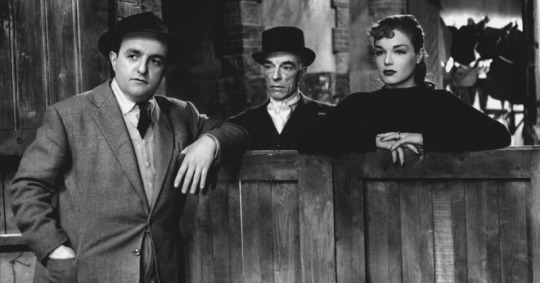
View On WordPress
#claude autant lara#film noir#gilles grangier#henri decoin#henri georges clouzot#jacques becker#jean pierre melville#jules dassin#julien duvivier
0 notes
Text
20 luglio … ricordiamo …
20 luglio … ricordiamo …
#semprevivineiricordi #nomidaricordare #personaggiimportanti #perfettamentechic
2021: Françoise Arnoul, nata Françoise Annette Marie Mathilde Gautsch, attrice francese. Figlia dell’attrice di teatro Janine Henry. Sposò Georges Cravennee e, dopo il divorzio, il regista e scrittore francese Bernard Paul. (n. 1931)
2019: Ilaria Occhini, è stata un’attrice e imprenditrice italiana. (n. 1934)
2017: Claude Rich, attore francese. Sposò l’attrice Catherine Renaudin. La coppia ebbe…

View On WordPress
#20 luglio#Arthur Carringford#Bruce Lee#Carol Grace#Carol Marcus Saroyan#Carol Matthau#Claude Rich#Elio Fiorucci#Françoise Annette Marie Mathilde Gautsch#Françoise Arnoul#Gian Paolo Rosmino#Harry Fox#Ilaria Occhini#Isabella Redi#Julien Carette#Julien Henri Carette#morti 20 luglio#Richard Eagan#Richard Egan#Robert Cornthwaite#Ruggero Ruggeri
0 notes
Text
Festival Les Émouvantes ( Conservatoire Pierre Barbizet, Marseille -France-) [I/II] Por Joan Cortès [Conciertos de jazz]
Festival Les Émouvantes ( Conservatoire Pierre Barbizet, Marseille -France-) [I/II] Por Joan Cortès [Conciertos de jazz]
Festival Les Émouvantes
Fecha: jueves, 22 de setiembre de 2022
Lugar: Conservatoire Pierre Barbizet, Salle André Audoli (Marseille)
Grupo:
Naïri Duo
Catherine Delaunay, clarinete
Claude Tchamitchian, contrabajo y composiciones
Quatour Béla & Marc Ducret
Frédéric Aurier, violín
Julien Dieudegard, violín
Julian Boutin, viola
Luc Dedreul, violonchelo
Marc Ducret, guitarra eléctrica
El…

View On WordPress
#Catherine Delaunay#Claude Tchamitchian#Festival Les Émouvantes#Frédéric Aurier#Joan Cortès#Julian Boutin#Julien Dieudegard#Luc Dedreul#Marc Ducret#Naïri Duo#Quatour Béla#Quatour Béla - Marc Ducret
0 notes
Text
ok so nobody asked, but in the absence of some good pictures of pride tape warmups from the sens pride game this weekend, I've been looking into the few pictures that are available and stumbled onto this unidentified player who made the absolute insane decision to use pride tape on their socks??

and i decided i need to know who it is.
the easiest way to start narrowing down the player's identity are the skates. they seem to be Bauer Vapor HyperLite Skates, which 8 sens players use, according to GearGeek.com


we can easily rule out josh since he's been on ir for months, but for everyone else remaining, we need to look at the tape job on the socks and the glimpse of stick
brannstrom, kastelic, tkachuk, stützle and batherson are out because they don't use a candy cane-type of tape





which leaves us with julien gauthier and claude giroux. from there, i zoomed in extremely closely on many, many pictures of their sticks t try to match them to the sliver of stick we see in that first picture and

it's claude giroux. 35 year old, flyers captain of 10 years claude giroux wrapped his shins in a single circumference's worth of pride tape for. pizzaz? support? leadership?
in conclusion, hire me as a sports journalist no one is asking the hard hitting questions like me
#so there isn't actually a point to this post#there are so few pictures from that warm up that i don't know if he had any tape on his stick but i'm pretty sure he's used in past years#so i assume he was also using some this year#like this isn't a criticism or anything. i just don't get it.#in theory it's an extra show of support which is cool. but he's used so little of it that it's practically unrecognizable as pride tape#because there isn't enough to see that it's meant to represent a rainbow#anyways. good night#long post#sorry if you actually read through the whole post#claude giroux#ottawa senators
1K notes
·
View notes
Text
@barricadebops and I were hanging out one night and decided that the Les Amis need first names. So we took it upon ourselves to name them, and here is what we settled on:
Antoine/Julien Enjolras
Etienne Combeferre
Jean-Pierre Courfeyrac
Mathieu Joly
Bernard Bousset
Rene Grantaire
Szymon Feuilly
Jehan Prouvaire
Charles Bahorel
Bonus:
Claude Montparnasse
(We could not agree on a name for Enjolras, the first pick is Annie's, the second one is mine.)
Feuilly has a Polish name for obvious reasons, and we threw Jehan in there so he doesn't feel excluded <3
This list is a gospel we will live by now (and if anyone wants to use it for a fic, you're more than welcome to).
#jean-pierre courfeyrac is the best thing that ever happened to me fr#seriously victor why didn't you name our boys#montparnasse is a bonus requested by me#les amis de l'abc#les mis#les miserables#enjolras#grantaire#courfeyrac#combeferre#les amis
56 notes
·
View notes
Text

ROYALTY︰FANCY ID PACK

NAMES ⌇ adalinda. adam. adela. adelaide. adelio. adrienne. agnes. aladdin. alaric. albert. alexander. alexandra. alice. alyssa. amadeo. amelia. anastasia. andrew. anita. anne. anneliese. ara. archie. aricia. ariel. armel. astrid. athena. aurora. aymeric. balder. baldr. baldur. bano. basil. beatrice. belle. blanche. blanchesse. blanchette. bonnette. bonnie. bowesse. bowette. brendan. briar. brioc. camilla. carl. caroline. caspian. catharina. catherine. cecilia. chainesse. chainette. chainne. charles. charlotte. chelidonis. christian. claude. cleopatra. corsette. crosse. crossette. crownesse. crownette. cynfael. damita. damyanti. darius. delphine. deoch. diana. duke. duncan. eadlin. edward. eleanor. eleanora. eleanore. elisabeth. eliza. elizabeth. elsa. emmanuel. erendira. eric. esperanza. estelle. eugene. eugenie. evelyn. fang. fangesse. fangette. farsiris. felix. frederick. frederik. frille. frillesse. frillette. gabriel. gearesse. gearette. george. gladys. gormlaith. grace. griffith. haakon. harry. hector. henrik. henry. ingrid. isabella. isadora. izella. james. jasmine. joachim. josephine. julia. julien. kiana. kingsley. lacesse. lacette. lacey. laurent. leonore. lilibet. louis. louise. lucas. lucienne. mabel. madeleine. mael. maelie. maelle. maelys. magnus. mailys. margaret. maria. marie. marina. martha. michael. nicolas. nikolai. nina. noire. noiresse. noirette. orla. oscar. palesse. palette. pari. paris. pearlesse. pearlette. philip. primrose. prince. princer. princessa. princesse. princette. princey. princie. prinze. prinzess. prinzessa. prynce. pryncess. quille. reagan. regina. regulus. ribbonesse. ribbonette. ribbonne. richard. robin. rognvaldr. rosalina. rose. rosette. rufflesse. rufflette. sabrina. sadie. saina. sara. sarah. sarai. sebastian. sharai. sofia. sophie. soraya. steven. sverre. tzeitel. vampesse. vampette. vampie. victoria. victorianne. vincent. watchesse. watchette. william. yseult. zadie.

PRONOUNS ⌇ apple/apple. blu/blush. bonnet/bonnet. bow/bow. chain/chain. che/cher. corset/corset. count/count. cro/crown. cro/own. cross/crosses. crown/crown. crown/crowned. crowned/prince. crowned/princess. dear/dear. dress/dress. dress/dresse. elegant/elegant. eth/ethel. fluff/fluff. frill/frill. frill/frilly, frill/frilly. frilly/frilly. gear/gear. grace/grace. he/heir. he/heiress. he/hir. he/ir. heart/heart. heir/ess. heir/heir. heir/heiress. heiress/heiress. king/king. lace/lace. lo/love. lord/lord. lord/lordship. love/love. luv/luv. melody/melodie. mirror/mirror. mon/arch. night/night. no/nobili. no/noble. pale/pale. pearl/pearl. pillow/pillow. pink/pink. pretty/pretty. pri/ince. pri/prince. pri/princess. prin/cess. prince/prince. princess/princess. princess/princesse. princess/princesses. queen/queen. ribbon/ribbon. ro/rose. ro/royal. robe/robe. rose/rose. royal/royal. royal/royalty, royal/royalty. royalty/royaltie. royalty/royalty, royalty/royalty. ruffle/ruffle. shy/hyr. sleep/sleep. snore/snore. suit/suit. tea/tea. throne/throne. ti/ara. ti/tiara. tiara/tiara. victorian/victorian. watch/watche. yawn/yawn. zzz/zzz. ⚔/⚔. ⚜/⚜. 🏰/🏰. 👑/👑. 💎/💎.

#⭐️lists#id pack#npt#name suggestions#name ideas#name list#pronoun suggestions#pronoun ideas#pronoun list#neopronouns#nounself#emojiself#royalkin#kingkin#queenkin#princekin#princesskin#royalcore#princecore#princesscore#kingcore#queencore
57 notes
·
View notes
Text
Paradoxes in the Revolutions of 1792 and the Revolt of 1870
Warning: There are some text elements in the treatment of Algerian deportees in New Caledonia that are shocking. So refrain from reading if you are not ready.
Do you share my impression of certain aspects of the different revolutions or uprisings in France? I mean, the French Revolution, at its most left-leaning during the government of Year II, was very conservative regarding property rights. Regarding property rights, the entire political class was very timid, even the far left like the Enragés and the Hébertists, who were more focused on economic issues like taxation. However, some, like Momoro, apparently began to consider land redistribution, such as sharing large farms, but without a clear plan (and far from any notion of collectivization of agriculture). There was a concession made by the Convention on property rights with the Ventôse Laws, perhaps? And it is true that on certain economic issues, there were conservative elements, even though during the journée of September 5, 1793, the sans-culottes managed to extract the maximum.
Even Gracchus Babeuf, who seems to advocate for collective exploitation, primarily talks about agriculture. I'm not saying there weren't progressive aspects. There were, like the introduction of universal suffrage, for example, and many other aspects, such as the fact that deputies like Louis Michel le Peletier defended the project to implement free, mixed, secular, and compulsory education, supported by several deputies, including Robespierre (it's sad that this was only adopted years later by a man who, opportunistically, in my opinion, lacked the integrity of Le Peletier, who seems to have been opposed to most of the revolutionaries of 1793-1794 and who unjustly reaped all the credit for this project—I’m talking about Jules Ferry, sorry to the fans of this character). But it must be acknowledged that there were also conservative aspects.
Paradoxically, the Convention proved to be extremely progressive compared to so many others regarding the colonies. The abbé Raynal, so conservative on property rights, apparently called Toussaint Louverture the "Black Spartacus." Sonthonax, considered a Brissotin and advocate of gradual abolition of slavery, did not hesitate to oppose the colonists and slaveholders (just like the Convention) by granting full citizenship to the revolting slaves of 1791 barely a year later. There was the dissolution of the colonial assembly, and important and well-known revolutionaries enthusiastically supported the revolts of the colonized, even their independence, like Deputy Marat or the prosecutor of the Commune, Chaumette, among many others. Black deputies were elected, such as Jean-Baptiste Belley. Some Black people managed to attain high ranks. The overly hostile colonists could be expelled, and there was the dismissal of Governor Philippe Blanchelande, who had distinguished himself by his fierce repression of the slave revolt. During his execution in 1793, Rosalie Julien, one of the important women of the revolution, wrote, "He made the blood of Blacks and patriots flow in streams." It is important to note that she equated the attack on Blacks with that on people considered patriots, a more common position at that time than one might think. I know we must be careful about anachronisms, but I feel that aside from a distrust of foreigners (though this did not prevent people like Fleuriot Lescot or Claude François Lazowski, who came from a Polish family, from holding important positions), the French political class was less racist in 1794 than in 1870 or during the mid-20th century, especially concerning the colonies and overseas territories. There was a regrettable step backward (honestly, can you imagine the Convention of Year II, or the Jacobin or Cordelier Clubs tolerating even the idea of a horrible human zoo as we saw in 1906? I can't). Of course, there were people who supported slavery at that time, like Cloots (a very questionable and paradoxical figure of the revolution, considered close to the Hébertists, yet a very wealthy and conservative man regarding property rights, who had pro-slavery thoughts and was a fervent supporter of colonization because his family and he profited from it, even though he supposedly wanted the Revolution to extend beyond borders according to his own words; according to historian Antoine Resche, he called himself the orator of the human race—very complicated as a revolutionary).
For those who think of the left envisioned by Karl Marx, we're still far from it. Here's an excerpt from The Holy Family: "The revolutionary movement that began in 1789 with the social circle, which, in the midst of its course, had as its main representatives Leclerc and Roux and eventually succumbed temporarily with Babeuf's conspiracy, had sown the seeds of the communist idea, which Babeuf's friend, Buonarroti, reintroduced in France after the revolution of 1830. This idea, developed consistently, is the idea of the new state of the world." Moreover, I have encountered communists who heavily criticize the revolutionaries, except for some ultra-revolutionary members (a few have even added Marat to the list of characters they appreciate, though they know he was not an ultra-revolutionary) by explaining that, in their view, the second revolution from 1792 until the fall of the last Montagnards like Charles Gilbert Romme remained bourgeois, though less so than the one of 1789.
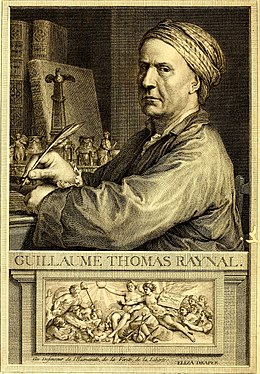
Abbé Raynal
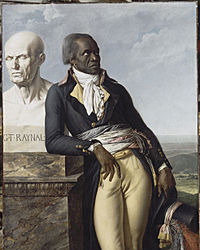
Jean Baptiste Belley
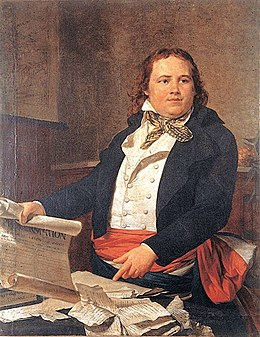
Léger-Félicité Sonthonax
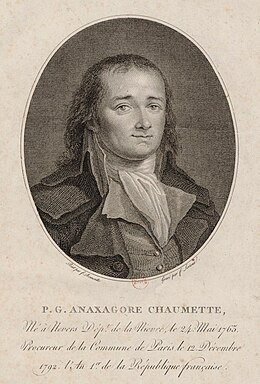
Pierre-Gaspard Chaumette
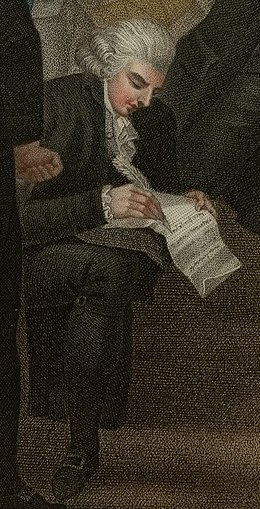
Jacques Roux
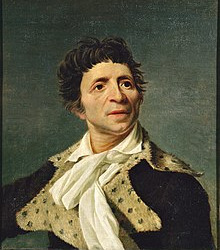
Jean Paul Marat
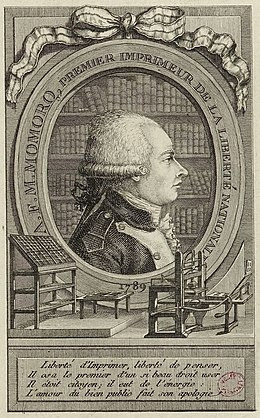
Antoine-François Momoro
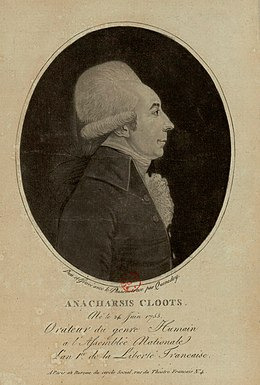
Anacharsis Cloots
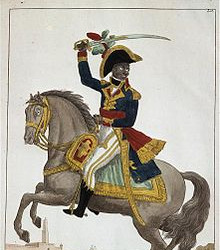
Toussaint Louverture
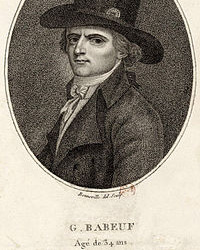
Gracchus Babeuf
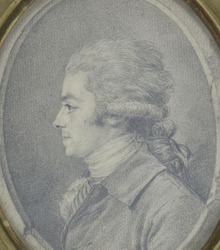
Jean-Baptiste Edmond Fleuriot-Lescot

Rosalie Jullien
On the other hand, we have the Paris Commune uprising of 1870, which ended in horrific repression (some estimate that 10,000 people died within a week in the city of Paris).
The origins of this Paris Commune are quite complex to explain, involving the fall of Napoleon III's dictatorship, Bazaine's lamentable behavior, the fact that the new regime forming a republic was composed of monarchists while Paris was predominantly republican, the new regime's abolition of wages, which was one of the only sources of income for workers, and so on.
These Paris communards represented various leftist movements, including the Blanquists, named after Auguste Blanqui (a small anecdote: the composer of "The Internationale" was a communard named Eugène Pottier), anarchists, Proudhonians, as well as centralists like Delescluze (some might even call them Jacobins, though I am not well-informed about that), and even collectivists. The Paris Commune marked a significant shift to the left (albeit briefly). I will mention four measures passed by this government: the abolition of night work (at least for bakers), the separation of Church and State, free, secular, and compulsory education, and the elimination of distinctions between legitimate and illegitimate children.
The repression was atrocious, with death sentences raining down (one of the key figures in the repression, alongside Thiers, was Jules Ferry), and deportations to New Caledonia as well.
It is here that the communards (or at least a significant number of them) were less progressive on certain issues than the main actors of the Convention of Year II. Except for individuals like Louise Michel or Charles Malato, the son of deported communards who followed them to Nouméa, most of the communards did not support the Kanaks at all. There was a lingering racist attitude towards these colonized people, who were also fighting against the injustices imposed on them by the French government. Some even participated in the repression against the Kanaks following the Great Kanak Revolt of 1878, whose main leaders were Atai, chief of Komalé, and Cavio, chief of Nékpi, among others.
I have the impression that the communards behaved similarly toward the deported Algerians. Indeed, in 1869, a significant new insurrection broke out in Algeria, spreading from Kabylie, the Aurès, and towards Algiers, and other territories (the war against France began in 1830, with the defeat of Emir Abdelkader in 1847, the division of three departments in 1848, and the continued Algerian resistance against the establishment of the French colony, notably led by Lalla Fatma N’Soumer and Cherif Boubaghla, though Fatma N'Soumer was captured by the French army in 1857 and died in captivity in 1863 at the age of 33, and Cherif Boubaghla died in combat in 1854; other uprisings lasted until 1870, and one of the most significant was that named Mokrani revolt ).
The insurrection was defeated after fierce fighting, with death sentences raining down, the expulsion of tribes, the sequestration of property, and deportations as well, with around 60 deportees dying from the conditions of deportation. Louise Michel described their arrival in these terms: "We saw them arrive in their great white burnouses, the Arabs deported for having also risen up against oppression. These Orientals, imprisoned far from their tents and flocks, were simple and just, and could not understand the way they had been treated."
They had even fewer privileges than the deported communards. According to some sources, they were chained with red-hot irons, subjected to more intense forced labor, and had to eat soup from the shoes of the jailers. They were forcibly separated from their wives, leading some to marry Kanaks, while others married communard women. It is true that some communards, like Louise Michel and Jean Allemane, campaigned for their amnesty. There were escapes by Algerians, some of whom were recaptured. One of the most famous was Azziz El Haddad, who died in the home of his friend the communard and former deportee Eugène Mourot on August 22, 1895, in Paris. Mourot was also opposed to the colonization of Algeria. A collection by the communards against colonization ensured that his body was repatriated to Algeria.
However, while some deported communards supported them, it should not be forgotten that other communards were driven by colonialist mindsets. It is also interesting to learn more about the Commune of Algiers, proclaimed by Alexandre Lambert, among others. Some European insurgents supported a fraternal republic, but one that excluded Algerian insurgents. Alexandre Lambert, who was killed during the Bloody Week, published a newspaper called Le Colon. The title is quite telling.
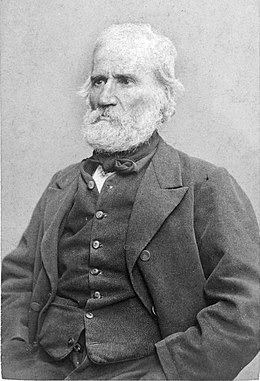
Auguste Blanqui
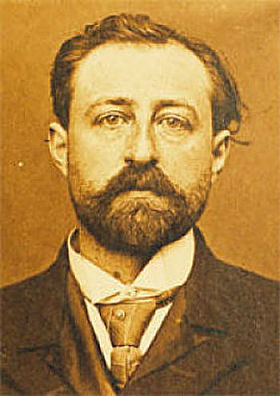
Charles Malato
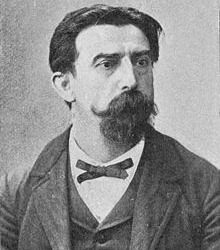
Jean Allemane
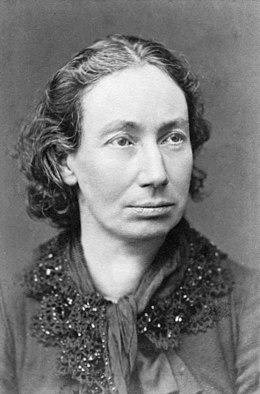
Louise Michel
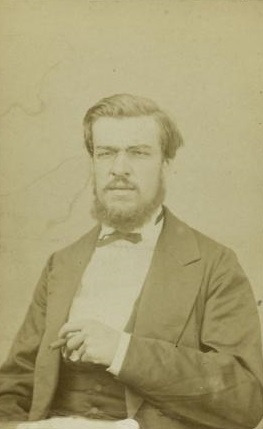
Eugène Mourot
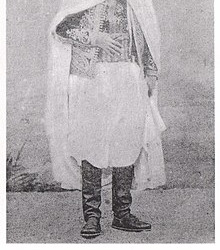
Bou-Mezrag El-Mokrani, brother of Mohamed El-Mokrani
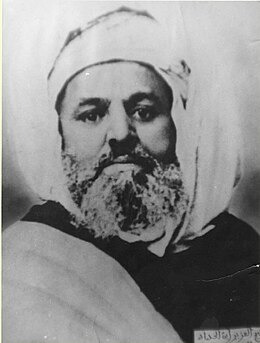
Cheikh El Haddad father of Aziz el Haddad and Cheikh M'hand
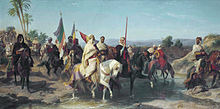
Chérif Boubaghla and Lalla Fatma N'Soumer (Henri Félix Emmanuel Philippoteaux, 1866) alleged portraits
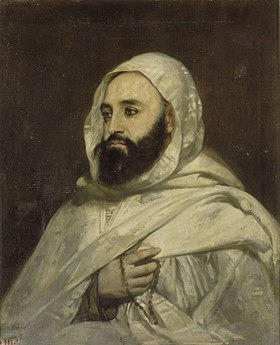
Émir Abdelkader
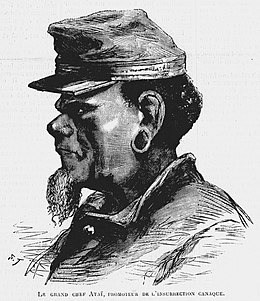
Ataï
And so, this is the paradox of these two French "revolutionary groups" from 1792-1794, and the group of the Communards from 1870. The first group, still very timid on certain social rights such as property rights (even within the extreme left), was nevertheless much more committed to advocating for more rights among men of different colors, with some even going further by supporting the ideas of revolts by the colonized. Moreover, the colonizers were much less listened to after a certain point in time.
In contrast, during the Paris Commune, while there were more progressive ideas and people who were less conservative about property rights (after all, there was representation from collectivists), they were much less engaged in supporting the colonized and at times even approved of colonial repressions.
Sources:
Jean Marc Schiappa
Alain Decaux
Antoine Resche
Mehdi Lallaoui - Kabyles du Pacifique
P.S.: I'm not trying to hand out praise or criticism regarding property rights. I'm merely attempting to make an observation. In fact, I might even be wrong on certain points, so I invite you to correct me. And I don't intend to bash the Paris Communards, many of whom suffered or gave their lives for an ideal Republic, and whose horrific repression we don't often discuss. But it's important to acknowledge everything, including their mistakes. Perhaps one day I should address the question of the French left as a whole, from 1789 to 1962, concerning colonization.
#frev#french revolution#france#commune#Paris Commune#1700s#1800s#algeria#new caledonia#colonization#Kanaks#marat#louise michel#Blanqui#babeuf#sonthonax#toussaint louverture#third republic
21 notes
·
View notes
Text
⋆✩ Lyney inspired names/pronouns/titles ! 𖦹⋆

art is official!
✦•······················•✦•······················•✦
🤍 names:
adrien , beaumont , casper , claude , delroy , dominique , emile , fabien , florence , florin , félix , hugo , jinx , jules , julien , kieran , killian , laurent , leo , lionel , loki , lucien , merlin , nicholas , nico , noel , pounce , preston , remy , thierry , valentin , yves , ziggy
✨ pronouns:
spark/sparks/sparkself , magi/magis/magiself , hearth/hearths/hearthself , card/cards/cardself , trick/tricks/trickself , jest/jests/jestself , flicker/flickers/flickerself , flamboyant/flamboyants/flamboyantself , py/pyr/pyrself , paw/paws/pawself , mew/mews/mewself , card/cards/cardself
any other variation pronouns of these may be used , of course !
🌨 titles:
the master of magic , the knave's jester , the conjuring charmer , the heart-stealer of the hearth , he of the finest facade , the catlike charmer , the cat-coiled companion , he who captivates the crowd , his illusionary innocence
prns and gendered terms may be replaced.
✦•······················•✦•······················•✦
#sunrise#reid#light#liom#actually mogai#mogai#xenogender#actuallymogai#name suggestions#fictive#introject#kin#lyney#lynette#genshin impact#title suggestions#pronoun suggestions#prns#list#transgender#trans#id#help
117 notes
·
View notes
Text
RE-imagined.
- Romy (The XX): Liar
- Remi Wolf: You First
- Wet Leg: C’est Comme Ça
- Bartees Strange: Figure 8
- Julien Baker: Thick Skull
- Panda Bear: Running Out of Time
- Running Out Of Time - Remix
- The Linda Lindas: The News
- Big Man, Little Dignity - Remix?
- Claud: Crave
43 notes
·
View notes